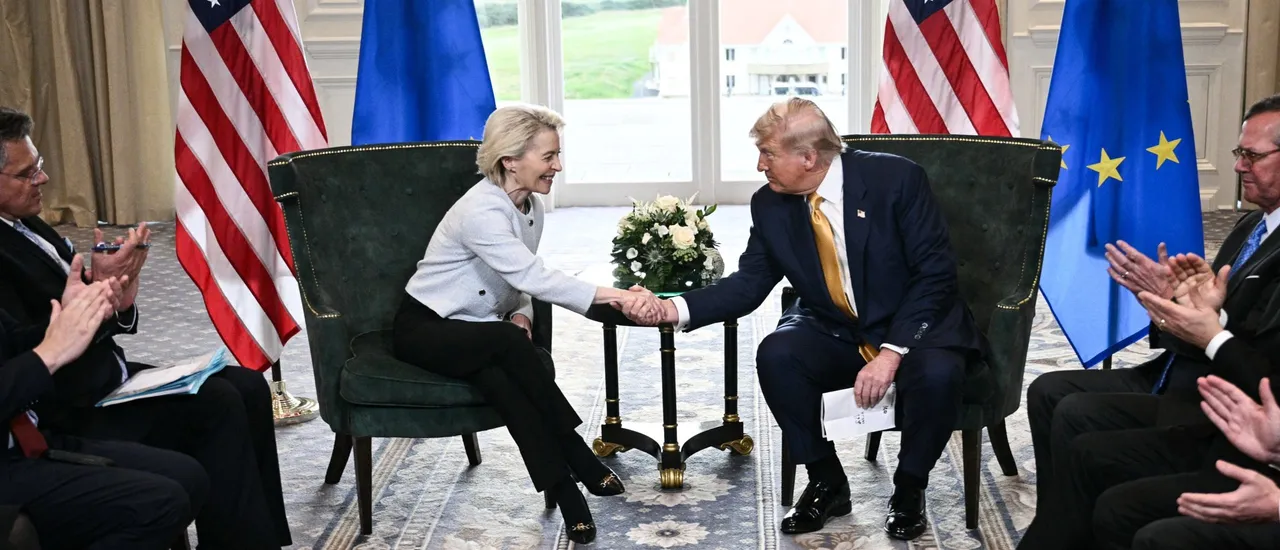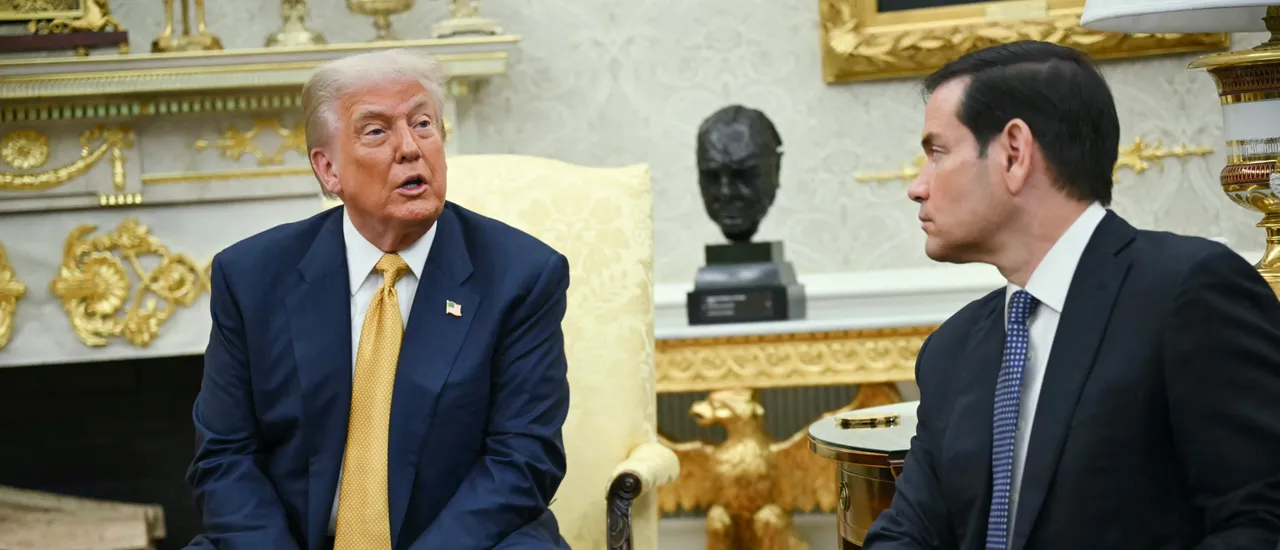The Trump administration has an opportunity to free the U.S. of draconian climate regulations and directives the European Union (EU) has imposed on American oil and gas companies for years, energy sector experts and industry insiders told the Daily Caller News Foundation.
Though the Trump administration made a major trade deal with the EU in July that benefitted American energy, the EU still imposes a number of climate regulations and directives that drive up U.S. energy costs, according to some energy policy experts. The Trump administration is positioned to pressure the EU into a fairer trading atmosphere and ease burdens on the American energy sector, industry insiders told the DCNF.
“It’s going to take the pressure of the Trump administration in the trade negotiations to get the EU to back down from these extraterritorial regulations imposed on American companies, including U.S. oil and natural gas producers,” Vice President of Corporate Policy at the American Petroleum Institute (API) Aaron Padilla told the DCNF. “The EU should not make it more difficult for companies to provide the energy that their consumers need.”(RELATED: EXCLUSIVE: Trump’s Energy Agenda Can Help US Beat China In Crucial Tech Race, Oil Industry Leader Says)

US President Donald Trump (R) shakes hands with European Commission President Ursula von der Leyen (L) after agreeing on a trade deal between the two economies following their meeting, in Turnberry south west Scotland on July 27, 2025, on the third day of his visit to the country, since his second tenure as President began. (Photo by BRENDAN SMIALOWSKI/AFP via Getty Images)
Energy sector experts and insiders specifically pointed to the Critical Entities Resilience Directive (CER), the EU methane regulation and the Corporate Sustainability Due Diligence Directive (CSDDD). The CSDDD requires companies to have a net-zero transition plan and the EU methane regulation places additional stringent emissions standards on the oil and gas industry, while the CER requires companies to report a whole host of risks that add red tape, according to energy insiders.
Trump has threatened the EU with tariffs to buy American oil and gas, and part of the major July trade deal required the EU to purchase $750 billion in American energy by 2028.
“The Administration continues to address trade barriers against every American industry with our trading partners, and commitments from the EU, Japan, South Korea, and other countries to buy hundreds of billions of dollars’ worth of American energy over the next few years reflect how President Trump is delivering on his agenda of fair trade and drill, baby, drill,” White House spokesman Kush Desai told the DCNF.
Tammy Nemeth, a strategic energy analyst, told the DCNF that the climate regulations and directives are burdensome to American oil and gas companies. Nemeth argues that these regulations increase costs on U.S. businesses and Americans as companies hoping to do business in the EU have to wrestle with layers of red tape and adopt a net-zero transition plan. It is difficult to estimate, but compliance with EU climate regulations and directives can add significant costs, according to Nemeth.
“I think if companies are approaching [these non-tariff barriers] with open eyes, they’ll say we need the government to help us maybe eliminate some of these non-tariff barriers, because if the compliance costs [equate to a] 10 to 30% increase, then that’s something that they have to pass on, not just to those to whom they’re exporting, but also domestically, because those are costs that are borne by the entire company,” Nemeth told the DCNF. “[These non-tariff barriers] could therefore increase costs to Americans, not just passing it on only to the Europeans, because all of those bureaucratic structures have to be established within the company, and that’s cost they have to absorb or pass on in some way.”
If American oil and gas companies decide to not comply with the climate regulations, they can be heavily fined or essentially forced out of trading with the EU, Nemeth said.
“It’s really quite absurd,” Nemeth said, noting that the EU already requires a significant amount of red tape and environmental reporting paperwork. Nemeth added that all the reporting also can open companies up to environmental litigation.
API has generally supported President Donald Trump’s energy policy and praised his April decision to exempt oil and gas from new reciprocal tariffs, however, the trade association argues that now is the time to force the EU into relaxing its non-tariff barriers. API has asked the Trump administration to negotiate EU non-tariff barriers, including the CSDDD and the EU methane regulation, to ease burdens on American oil and gas companies hoping to do business in the EU, Padilla noted.
Secretary of State Marco Rubio rejected the International Maritime Organization’s net-zero framework on Tuesday, stating that the U.S. “will not tolerate any action that increases costs for our citizens, energy providers, shipping companies and their customers, or tourists.” (RELATED: Trump Delivers Fresh Threats To Europe, Demands They Buy American Oil Or Face Tariffs)

US President Donald Trump (L) speaks as US Secretary of State Marco Rubio looks on during a meeting with Filipino President Ferdinand Marcos Jr. (not pictured) in the Oval Office of the White House in Washington, DC, on July 22, 2025. (Photo by ANDREW CABALLERO-REYNOLDS/AFP via Getty Images)
An EU official told the DCNF that negotiations with the U.S. are still ongoing, though any amendments to EU legislation would represent a non-negotiable boundary for the EU.
Energy costs have been a major concern for European officials following the 2022 spike in prices, which hit the continent’s economies after Russia’s invasion of Ukraine and weaponization of its natural gas supply. Many European countries are also devoted to a green energy transition as the continent faces high electricity prices and grid instability.
Notably, several European countries have recently moved to rethink or reverse their anti-nuclear pledges in search of a sustainable energy resource.
“We say to the Europeans, you don’t need to put these non-tariff barriers into place. The only result of them is going to be to make it more expensive and difficult for Europeans to import the energy that they need from the United States. Don’t bite the hand that feeds you,” Padilla said. “You need oil and you need natural gas from the United States, especially in the wake of Russia’s invasion of Ukraine. So, don’t make it more difficult to get that energy that you need from the United States.”
Nemeth and other energy policy experts argued that these non-tariff barriers work to benefit EU oil and gas companies and disincentivize American companies from competing in the European market.
“For years, the European Union has used trade policy as a backdoor to impose its climate agenda on American businesses. Their reporting rules and carbon tariffs aren’t about saving the planet, they’re about controlling markets and kneecapping competitors,” CEO and founder of the American Energy Institute Jason Isaac told the DCNF. “As President Trump negotiates with the EU, the first order of business must include a clear commitment to scrap these schemes. The United States should set the terms and not let European bureaucrats punish American energy.”
All content created by the Daily Caller News Foundation, an independent and nonpartisan newswire service, is available without charge to any legitimate news publisher that can provide a large audience. All republished articles must include our logo, our reporter’s byline and their DCNF affiliation. For any questions about our guidelines or partnering with us, please contact licensing@dailycallernewsfoundation.org.











![Florida Man With Violent History Arrested for Choking a Cop [WATCH]](https://www.right2024.com/wp-content/uploads/2025/06/Eleven-Stabbed-in-Attack-at-Salem-Homeless-Shelter-Across-From-350x250.jpg)





